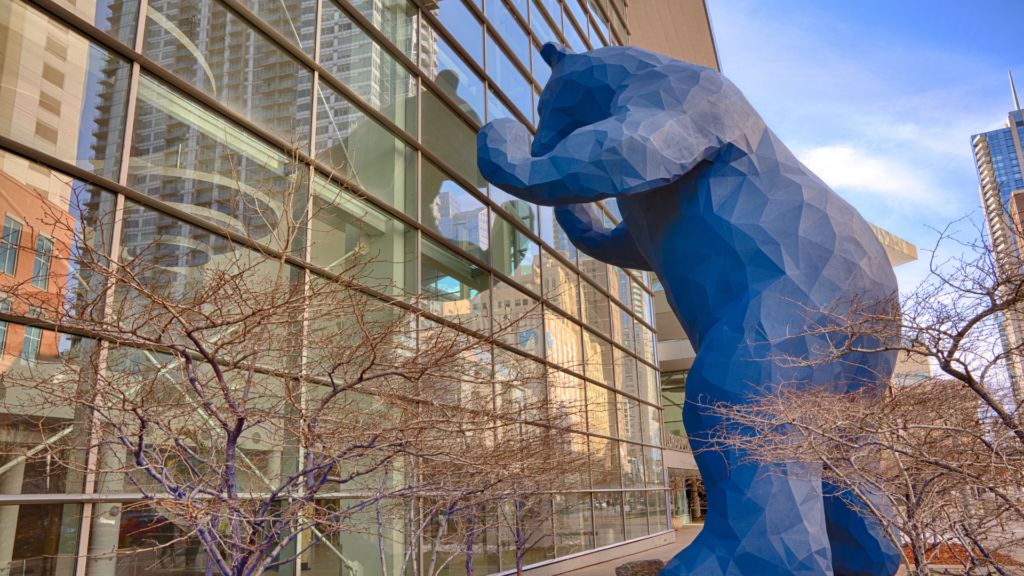
Table of Contents
Colocation in Colorado: Brightlio’s Comprehensive Guide to the Denver Data Center Market
Over the past fifteen years, Colorado has experienced significant economic growth. In 2022, the state amassed a gross GDP of $371.3B, ranking it among the top 20 largest state economies in the United States. This economic boom continues to attract a host of large corporations to Colorado. As such, the Denver data center industry is rapidly becoming one of the top locations for businesses interested in retail colocation.
Considered a prime “second-tier” digital hub, Denver has received increasing demand for data centers. This guide explores the seven most compelling reasons why you should consider Denver colocation centers for your business.
Data Centers in Denver Enjoy Robust Fiber and Network Connectivity
Denver has a well-developed network infrastructure, including several fiber-optic networks, ensuring colocation providers have the bandwidth they need to support their customers. In addition, this fiber-dense city serves as a connection point between other major markets like Salt Lake City, Phoenix, and Las Vegas. Top fiber providers in this city include SECOM, Jade Communications, Fastrack Communications, and Strata Networks.
Denver is also known for having many internet service providers (ISPs) that offer high-speed internet and other connectivity services. These providers help to reduce downtime and improve overall performance for retail colocation providers and their customers.
Denver Data Center Market Is an Established Industry
With over 50 colocation facilities and 20 data centers, Denver has an established data center market offering many business advantages. The city has a long history of innovation in the technology industry and has been at the forefront of the data center market for many years. An innovative business atmosphere has led to the development a robust and mature market for hosting Denver colocation services.
Denver is home to over 700,000 square feet of commissioned data center space and 71 MW of power. Several popular colocation facilities like CoreSite, DigitalRealty, Flexential, Equinix, and Cyxtera can be found on Denver’s data center map. Although some colocation facilities are located in the southern suburbs, like Aurora and Broomfield, many more providers reside in the city’s downtown areas.
Denver’s established data center market also strongly focuses on innovation and technology. Many providers in Denver constantly look for ways to improve their services and stay ahead of the latest trends in the market. This proactive nature helps ensure businesses have access to the latest technologies and can take advantage of new opportunities.
Reduced Power Costs Make Denver Colocation Viable
Average power costs in Denver are around $0.152/kilowatt-hour, which is significantly lower than other data center markets like Dallas, San Diego, and Los Angeles. Denver is located near hydroelectric power sources in the Western United States. Because of this, the city has a well-developed transmission and distribution system that allows colocation facilities access the power they need, even during times of high demand.
One of the critical advantages of Denver’s power market is the diverse mix of power sources which helps to keep the prices stable and affordable. Colorado actively promotes the use of alternative energy sources like solar and wind power, which can help to reduce power costs for colocation facilities. In 2018, the state government set a goal to achieve 100% renewable energy generation by 2030.
Major Cloud Service Providers Reside in Denver
Denver is home to many cloud providers that service data centers within its borders. Major cloud service providers in the city include Microsoft Azure, Google Cloud, Amazon, and IBM.
With Denver’s robust network structure, businesses can find low-latency cloud on-ramps to their primary service company. One advantage of having major cloud service providers in Denver is the ability for businesses to access a wide range of options to help them find solutions to their needs.
Colorado Has a Relatively Low Natural Disaster Profile
For the past 100 years, Colorado has only experienced 101 natural disasters. This number ranks well compared to other thriving data center markets like California (355), Texas (368), and New York (107). If you’re exploring Denver server colocation, these stats should give you confidence that you will get uptime from a colocation data center in Denver.
However, due to its dry climate, mountain peaks, and thick vegetation, Colorado is often a magnet for wildfires. As a result, the state’s fire department consistently collaborates with local and federal entities to develop wildfire management programs that protect citizens and businesses from damage. These programs are essential for companies that rely on their IT infrastructure to operate and generate revenue.
Beyond the occasional forest fires and snowstorms, Denver is a low-risk metro area for natural disasters. The city is well inland, making it unsusceptible to hurricanes. It is also positioned on high plains that protect it from severe winter storms. Denver’s low disaster profile means that its data centers are less likely to suffer service interruption. This makes it an attractive option for businesses looking for a reliable and secure location for their IT infrastructure.
Denver’s Geography Affords Ambient Data Center Cooling
Denver’s mild climate and low humidity allow Denver colocation facilities to take advantage of ambient cooling, or cooling using outside air rather than air conditioning. Temperatures often vary from 22°F to 89°F and are rarely below 6°F or above 96°F.
Most of the year, Denver’s temperatures are cool enough that outside air can cool the interior of a colocation facility. Ambient cooling can help improve the overall reliability of Denver colocation facilities, as mechanical cooling can be a source of downtime.
By relying on ambient cooling, colocation customers in Denver can enjoy significant energy savings and reduced maintenance costs associated with mechanical cooling systems.
The City Offers Friendly Business Incentives
Although Denver does not provide specific tax breaks to data centers, the city’s Enterprise Zone program allows businesses to enjoy a variety of tax credits. Data centers can access these exemptions when they hire new employees and invest in new equipment.
Additionally, Denver runs a sales tax rebate program for businesses creating jobs and investing in the local community. Many cities and counties have demonstrated a willingness to incentivize the development of data centers by implementing the HB18-1271 bill.
The city’s Economic Development Office also works closely with businesses to provide resources and support to help them succeed. This support includes networking opportunities, training programs, and access to funding and financing.
How Can Brightlio Help With Denver Colocation Pricing?
Colorado data center providers are ready to fulfill your needs if you require a colocation facility. The best colocation data center in Colorado will depend on your technical requirements and budget. At Brightlio, we’re committed to helping you select the right colocation partner for your business.
Our expert team is always available to provide competitive Denver colocation pricing and estimates, all at no cost to you. With a reliable network of global, top-tier data centers, we deliver retail colocation services to suit your needs and budget. We also offer network connectivity, SD-WAN, unified communications, and public cloud solutions.
Contact Brightlio today to get started!
Recent Posts
Vancouver Data Centers: Colocation in the Pacific Northwest
Business Broadband Solutions: The Ultimate Guide
Let's start
a new project together



